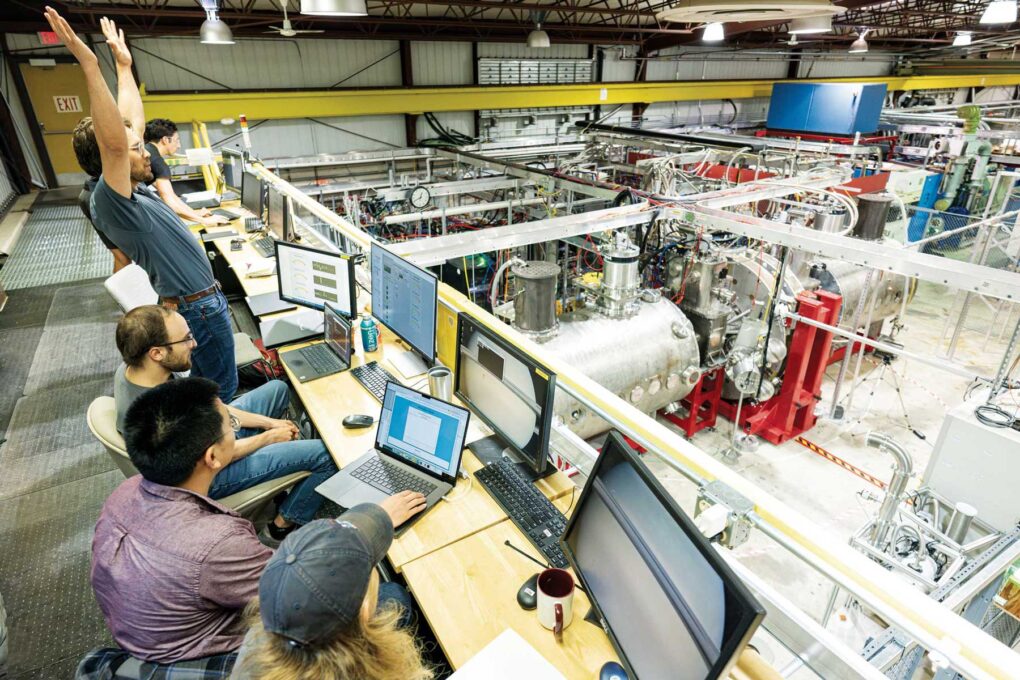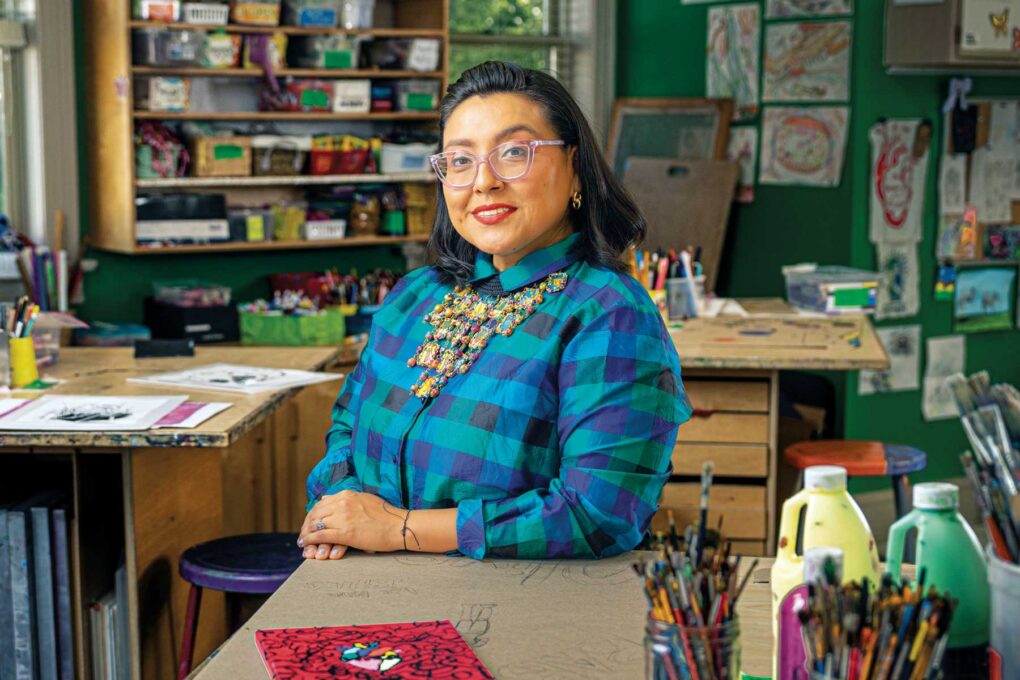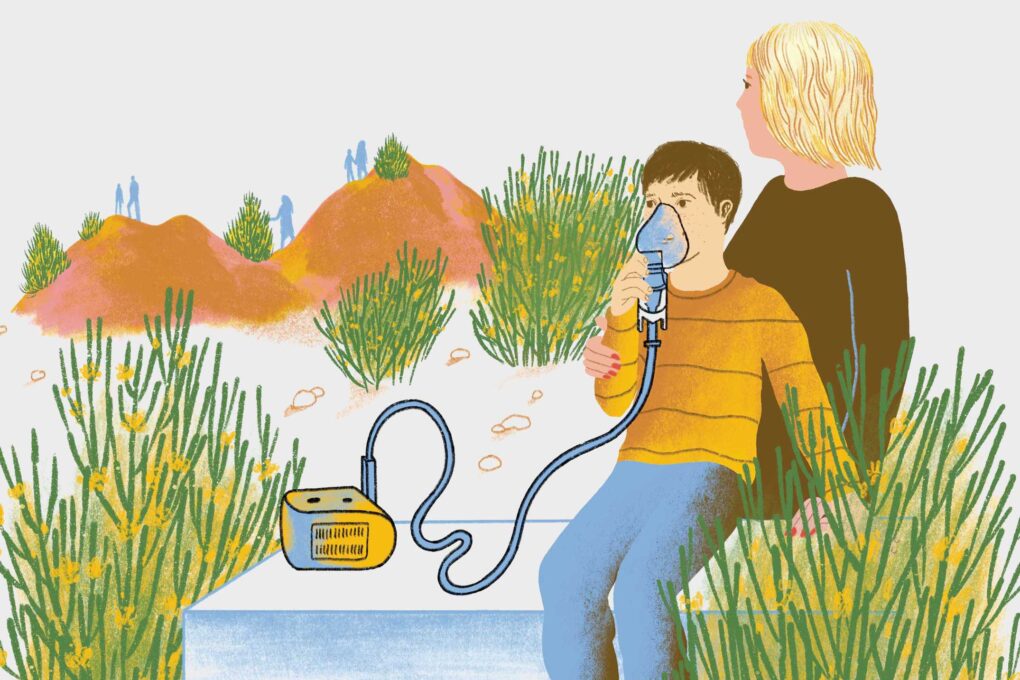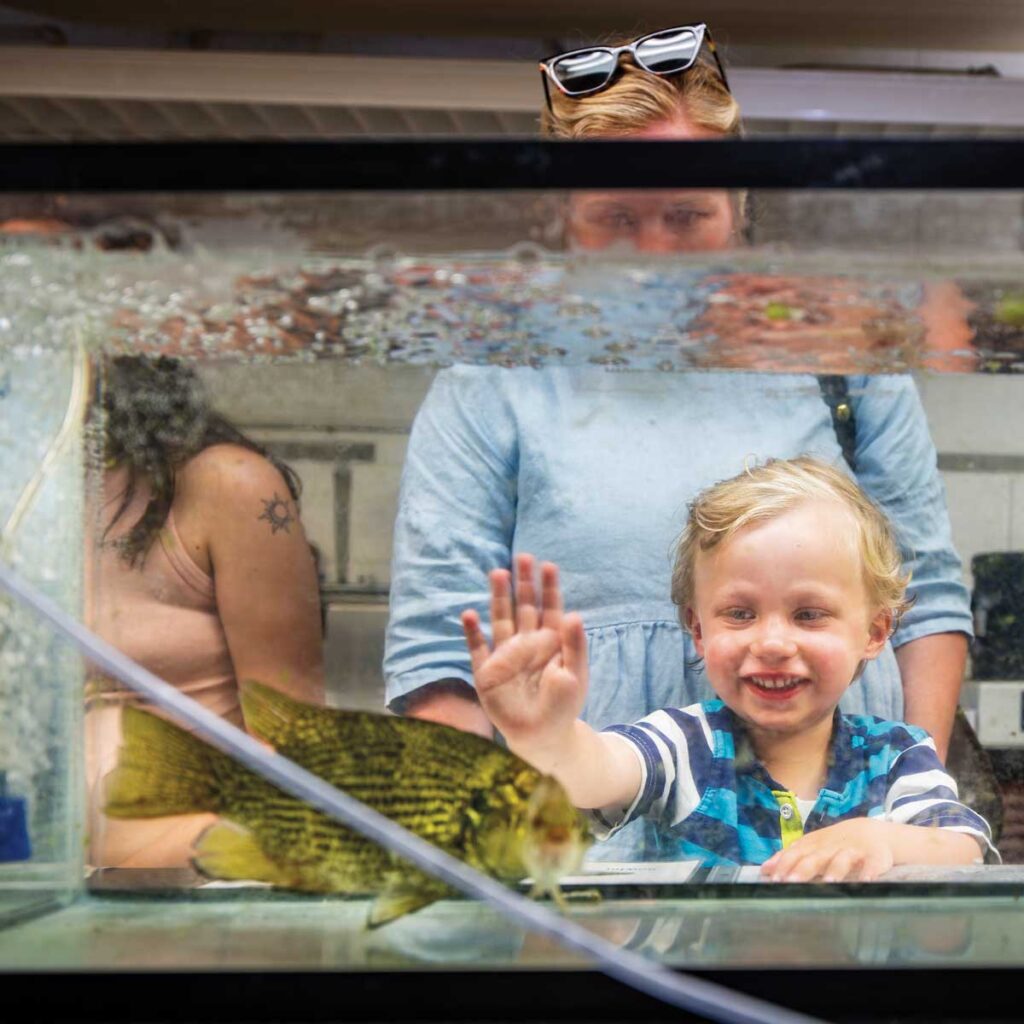
Deep Dive
What’s beneath the surface of Lake Mendota? At the Hasler Laboratory of Limnology’s annual open house, community members explored the aquatic life of Madison’s lakes and spoke with researchers. They also met some of the plants and animals living in the waters during a hands-on introduction to the tools freshwater scientists use.
“We understand how deeply the people of Madison and beyond care about our lakes,” says Helen Schlimm, a research specialist and outreach coordinator for Hasler Lab. “Our open house has been running for a decade, while UW–Madison scientists have been studying the Madison lakes for over a century.”
Some visitors went out on a boat ride to collect water samples from the lake while others marveled at zebra mussels through a microscope or made fish puppets. Plus, there were plenty of real fish to observe and identify.
“We open our doors to everyone and set up hands-on activities and lake tours to engage the community in what we do as freshwater scientists,” Schlimm says. “The open house is always a bright spot in our yearly outreach calendar.”
A huge problem in advice research is that people are very persuaded by confidence. … You have a lot of very confident people out there giving advice, and people cannot tell the difference.”
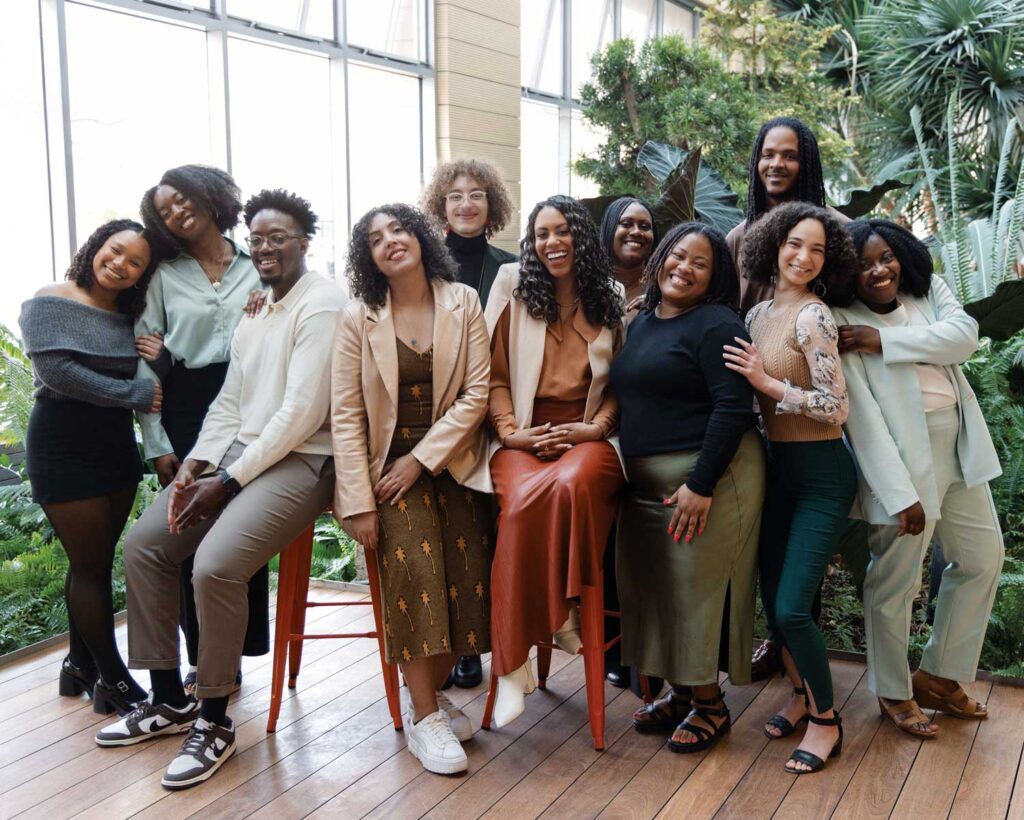
Collective Experience
What is the Black experience in Madison? That’s the question at the heart of the research being tackled by the SoulFolk Collective—a new research lab created by Assistant Professor of African American Studies Jessica Lee Stovall (’07). Working with a team of 11 undergraduate and graduate students from disciplines across campus, Stovall has interviewed Black Madison residents from varied economic and social backgrounds to hear their stories. The project is part oral history, part social experiment, and in the end the group hopes to understand and support this community. “It’s really a look at how Black people navigate space, and how they find and design spaces where they feel like they can be their full selves,” Stovall says. Read more and watch the video at go.wisc.edu/lssoulfolk.
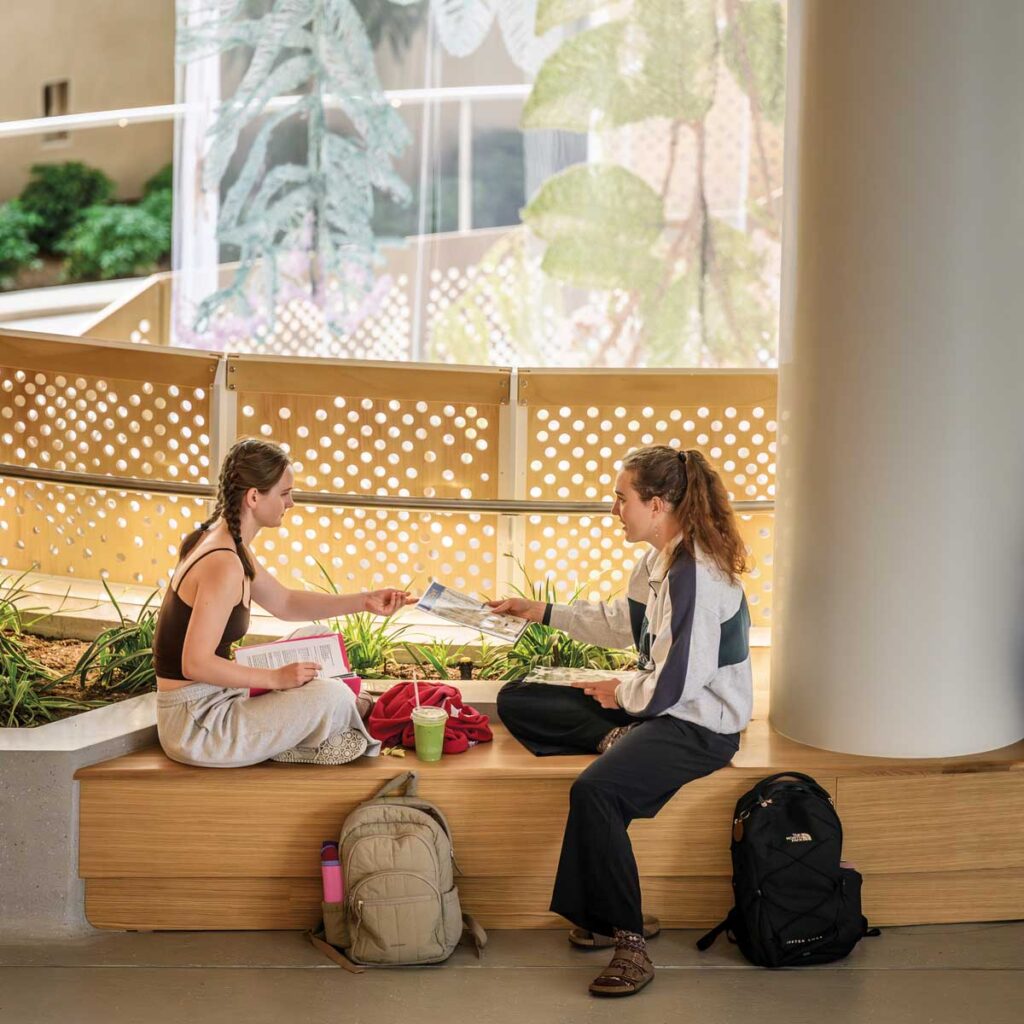
Doors Open
This September, students were welcomed into Morgridge Hall. The state-of-the-art building, named for UW–Madison alumni and longtime philanthropists John (’55) and Tashia (’55) Morgridge, is the new home for the School of Computer, Data & Information Sciences. Students took classes, had study sessions in the plant-filled atrium and grabbed coffee at the new café, Ground Truth. Next year will bring another ribbon cutting for Letters & Science, with Irving & Dorothy Levy Hall scheduled to open during the summer of 2026. Marv (’68, JD’71) and Jeff (’72) Levy are the lead donors for the project, and the building’s name honors the memory of their parents. Marv, Jeff and their late brother Phillip (’64) Levy are all proud L&S graduates. This new hub for the humanities will house eight L&S departments.
That’s the number of students who have been a part of the First-Year Interest Groups (FIGs) Program, which creates cohorts of students who share common academic interests and three fall-semester classes together. This year, the beloved program is celebrating its 25th anniversary.

